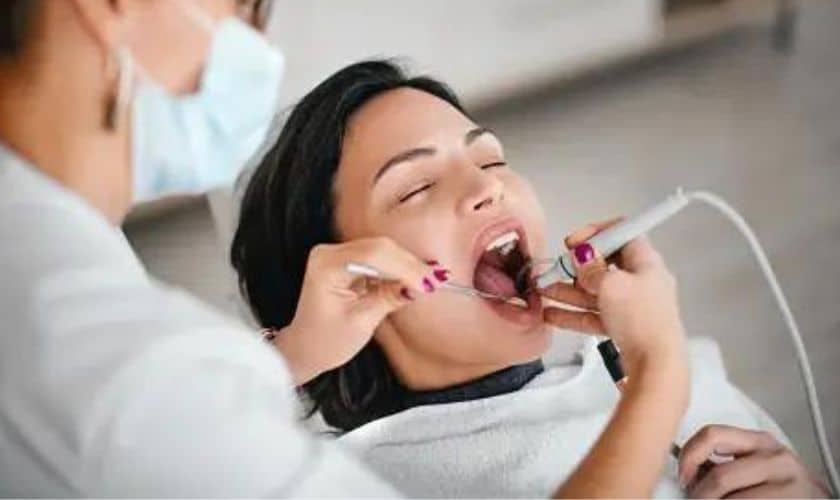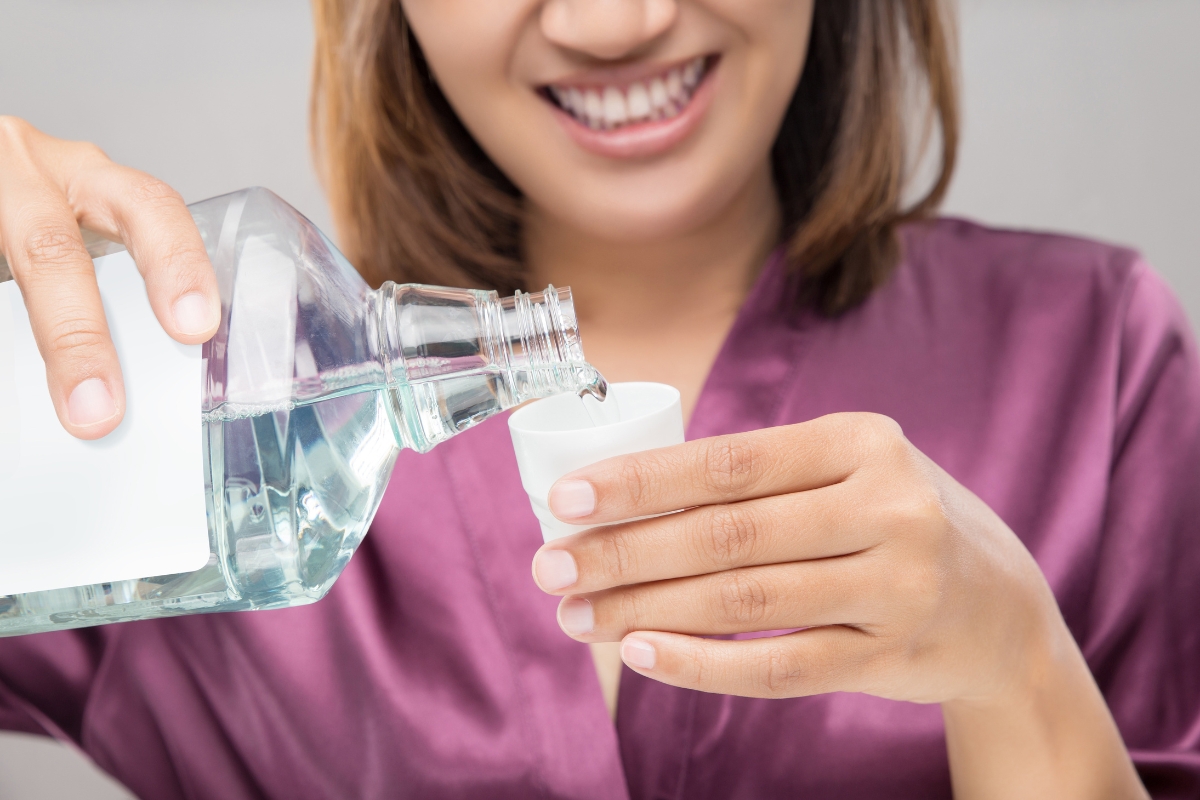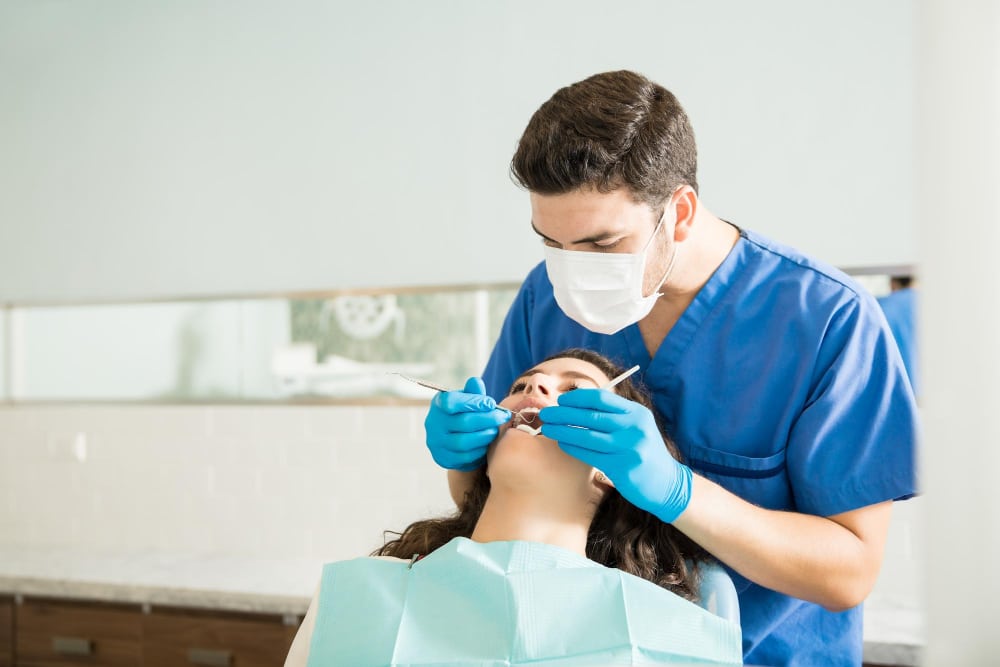
Are you tired of dealing with stubborn tartar and plaque on your teeth? Are you Worried about tooth extraction to get rid of these dental woes? Well, fret not! This blog post will explore effective ways to remove tartar and plaque from your teeth without resorting to tooth extraction. Say goodbye to expensive dental procedures, and hello to a cleaner, healthier smile! So grab your toothbrushes, and let’s dive right in!
What Is Tartar?
Tartar, also known as dental calculus, is a hard and yellowish deposit that forms on the surface of your teeth. It occurs when plaque – a sticky film of bacteria – is not properly removed through regular brushing and flossing. When left undisturbed, plaque can harden into tartar within a few days.
Unlike plaque, which can be easily removed with proper oral hygiene practices, tartar cannot simply be brushed away. If left untreated, this stubborn substance firmly attaches to the teeth and extends below the gum line.
Tartar poses several risks to your oral health. First and foremost, it provides an ideal environment for harmful bacteria to thrive. These bacteria release toxins that irritate the gums and cause inflammation – leading to gum disease or gingivitis.
Furthermore, tartar buildup on your teeth can contribute to bad breath (halitosis) and make your smile dull or discolored. If these deposits are not addressed promptly, they may require professional intervention from a dentist or hygienist for removal.
Regular dental cleanings prevent tartar buildup by removing accumulated deposits before they become problematic. However, there are also steps you can take at home to minimize tartar formation between dental visits – we’ll explore those further in this article!
What Is Plaque?
Plaque is a sticky film that forms on the surface of your teeth. It is made up of bacteria, food particles, and saliva. This bacterial buildup can lead to tooth decay and gum disease if not removed regularly.
The process of plaque formation starts when bacteria in your mouth feed on the sugars in food and beverages. As they consume these sugars, they produce acids that attack the enamel of your teeth, leading to cavities. Over time, if this plaque is not removed through proper oral hygiene practices such as brushing and flossing, it hardens into tartar.
Unlike plaque which can be brushed away with regular cleaning habits, tartar cannot be removed at home and requires professional dental intervention. Tartar is a magnet for more plaque to accumulate around it, leading to further damage if left untreated.
Preventing plaque buildup involves maintaining good oral hygiene by brushing twice daily with fluoride toothpaste, using dental floss or interdental brushes to clean between your teeth daily, and visiting your dentist regularly for professional cleanings.
How To Remove Tartar And Plaque On Your Teeth
Tartar and plaque on our teeth can be quite a nuisance. Not only do they ruin the appearance of our smiles, but they also contribute to dental issues such as cavities and gum disease. Fortunately, there are ways to remove these stubborn substances without tooth extraction.
One effective method is regular brushing and flossing. Brush your teeth at least twice daily using a soft-bristled toothbrush and fluoride toothpaste. Be sure to brush along the gumline and all surfaces of your teeth for two minutes each time. Floss daily to remove plaque from areas that your toothbrush may not reach.
Another way to tackle tartar buildup is by incorporating an antimicrobial mouthwash into your oral hygiene routine. This helps kill bacteria in the mouth, reducing plaque formation.
If you’re looking for natural remedies, try oil pulling with coconut oil or rinsing with diluted hydrogen peroxide after brushing.
Regular dental check-ups are crucial too! Dentists have specialized tools like scalers that effectively remove tartar buildup during professional cleanings.
By adopting good oral hygiene practices at home alongside regular visits to the dentist, you can keep tartar and plaque at bay without the need for drastic measures like tooth extraction. So take care of those pearly whites – your smile will thank you!
When To See A Dentist For Tartar And Plaque Removal
When it comes to tartar and plaque removal, sometimes you need a professional touch. While you can try various at-home remedies, it’s important to know when to seek help from a dentist.
Regular dental check-ups are essential for maintaining good oral health. During these visits, your dentist will assess the condition of your teeth and gums, including any build-up of tartar or plaque. They have the tools and expertise to remove stubborn deposits that cannot be eliminated through regular brushing and flossing alone.
If you notice persistent bad breath or a foul taste in your mouth, this could indicate an excessive build-up of tartar and plaque. Discoloration on your teeth or tender gums may also indicate it’s time for a professional cleaning.
Additionally, if you experience bleeding gums during brushing or flossing, this could indicate gum disease caused by tartar and plaque accumulation. In such cases, seeking prompt dental care is crucial to prevent further damage.
Each person’s oral health needs are unique. It is recommended to consult with a dentist who can evaluate your specific situation and advise on the appropriate course of action regarding tartar and plaque removal.
Remember that prevention is key – maintaining good oral hygiene practices at home and regular dental visits can help keep tartar and plaque under control before they cause more serious issues.
Say Goodbye to Tartar: Simple Steps for a Healthier Smile
Keeping tartar and plaque off your teeth isn’t just about looks — it’s essential for your oral health! Regular brushing with fluoride toothpaste, daily flossing, using mouthwash, and choosing a low-sugar, low-acid diet can help you prevent buildup without facing tooth extraction.
Even with great home care, stubborn tartar can sneak in — that’s why professional cleanings are a must. Dentists have the tools to remove what you can’t.
Stay ahead of dental problems by combining smart daily habits with regular dental visits. A healthy, bright smile is always worth it!



